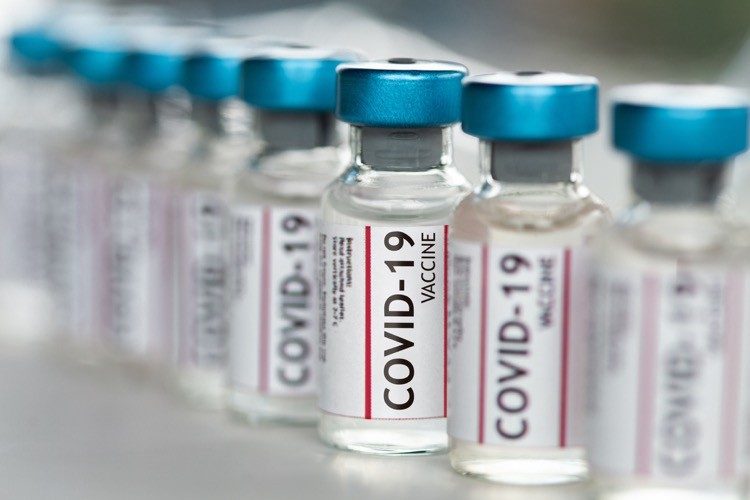
As the rollout of COVID-19 injection continues, newly reported cases of the adverse reactions keep emerging across the United States. Now, just weeks after the Pfizer-BioNTech shot was approved for use in patients between the ages of 12 and 16, a few alarming cases of myocarditis, or heart inflammation, were reported.
Myocarditis is a condition that causes inflammation of the heart muscle, weakening the heart, which makes it work harder to circulate blood and oxygen through the body, according to the Myocarditis Foundation.
About 3.1 million cases of myocarditis were diagnosed in 2017, the foundation said. Symptoms can include fatigue and chest pain as well as heart palpitations. The condition can lead to rapid or abnormal heart rhythms and even sudden cardiac death.
The CDC’s Advisory Committee on Immunization Practices said in a statement dated May 17 that it had looked into reports from the Department of Defense (DoD), the Vaccine Adverse Event Reporting System (VAERS), and Vaccine Safety Datalink (VSD) regarding the issue. There were also brief updates from the Veterans Administration (VA) and the Clinical Immunization Safety Assessment (CISA), which noted that there were cases of young vaccine recipients, predominantly adolescents and young adults, and predominantly male, developing myocarditis within four days after receiving their second dose. Although the Vaccine Safety Technical (VaST) Work Group says such reports have not exceeded expected rates, and there are “few reports,” the VaST “felt that information about reports of myocarditis should be communicated to providers.” No detailed information on the cases was provided by the CDC, but the agency’s review is still in its early stages. No evidence to suggest that the COVID vaccine is linked to the heart condition reports in teens or young adults has been determined by the CDC to date.
In a statement, the CDC vaccine safety group says the reaction should be monitored, and further information should be collected through medical record review about potential myocarditis cases that were reported into VAERS. It also noted that information about this potential adverse event should be provided to clinicians to enhance early recognition and appropriate management of persons who develop myocarditis symptoms following vaccination.
On May 14, the CDC alerted clinicians to the possible link between myocarditis and vaccines, and state health departments in Washington, Oregon, and California have alerted emergency providers and cardiologists to the potential problem. A report on seven cases has been submitted to the journal Pediatrics for review.
On April 27, CDC director Rochelle Walensky said that the younger demographics seem to be more prone to developing myocarditis after the inoculation but refused to draw a link between the COVID vaccines and 14 cases of heart inflammation among older people who were vaccinated through the military’s health services.
On April 25, Israel’s Health Ministry said it is examining a small number of cases of heart inflammation in people who had received the Pfizer COVID vaccine. Most of the cases in Israel were reported among people age 30 and under.
As reported by the New York Times, some doctors encourage young people to get inoculated despite the “unusual reaction,” and emphasize that the potentially rare side effect of myocarditis paled in comparison to the potential risks of COVID, including the persistent syndrome called “long COVID” Acute COVID itself can cause myocarditis, they say. “The relative risk is a lot in favor of getting the vaccine, especially considering how many doses of the vaccine have been administered,” they say. In other words, let your adolescents play that Russian roulette; the odds of staying healthy and alive are on their side.
Other doctors have sounded an alarm on such a number of adverse reactions, including heart inflammation, following the vaccine. Dr. Ryan Cole said during an appearance on Rose Unplugged 1320 WJAS, “We’ve seen more deaths from this shot than all vaccines in the last 20 years combined — and that’s just in the first 4 to 5 months.”
On May 21, a group of parents, along with America’s Frontline Doctors (AFLDS), filed a motion in federal court seeking a temporary restraining order “to prevent the expansion of the FDA’s Emergency Use Authorization (EUA) for COVID-19 vaccines to include children under the age of 16.”
AFLDS doctors argue that “We’ve never seen this level of side effects for any vaccine without the FDA taking action…. The Rotavirus vaccine was pulled for 15 cases of non-lethal side effects and the Swine Flu vaccine was pulled for 25 deaths. But now, by the CDC’s own data, we are seeing a 12,000 percent increase in deaths with these vaccines and they’re still talking about giving this to our kids.”
Since federal regulators began allowing younger teenagers to receive Pfizer’s COVID-19 vaccine last week, about 1.87 million Americans ages 12 to 15 have already gotten at least their first shot, according to CDC data.




